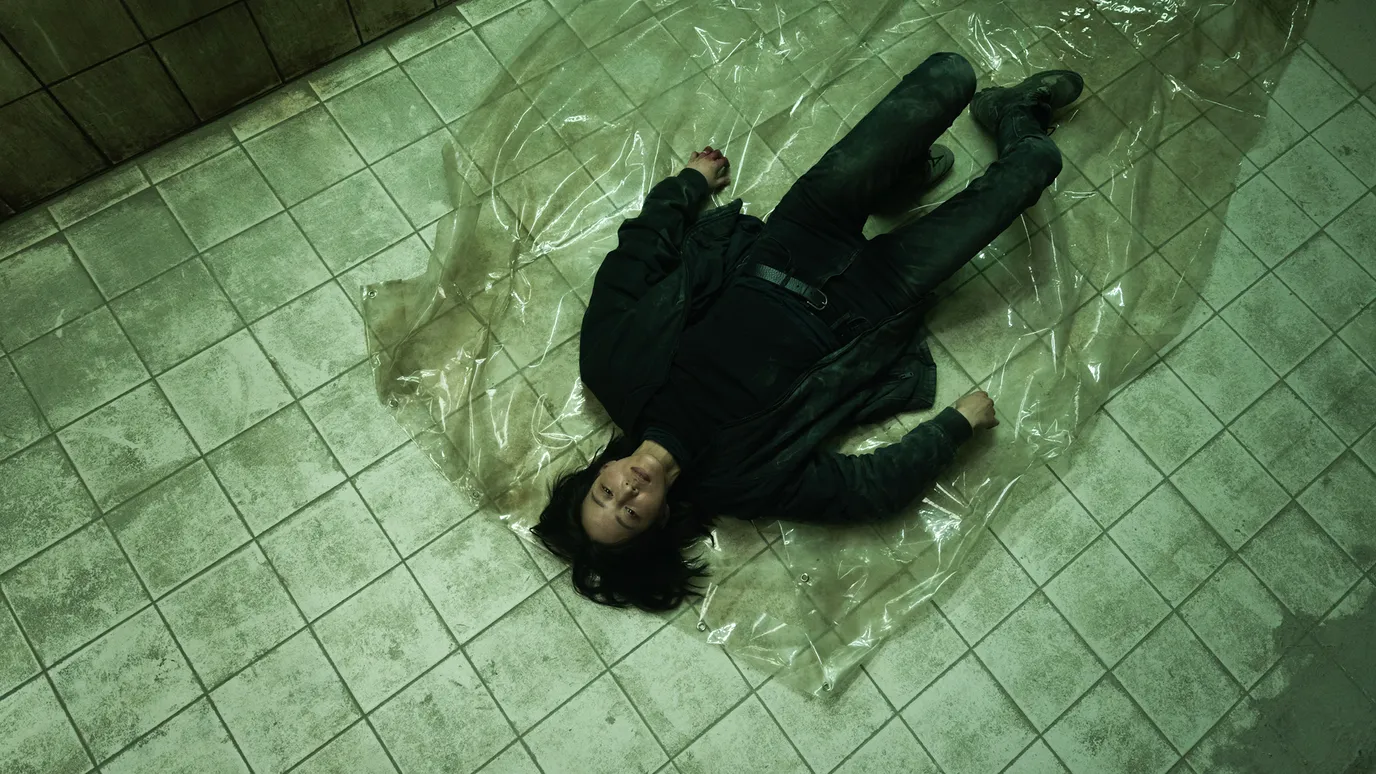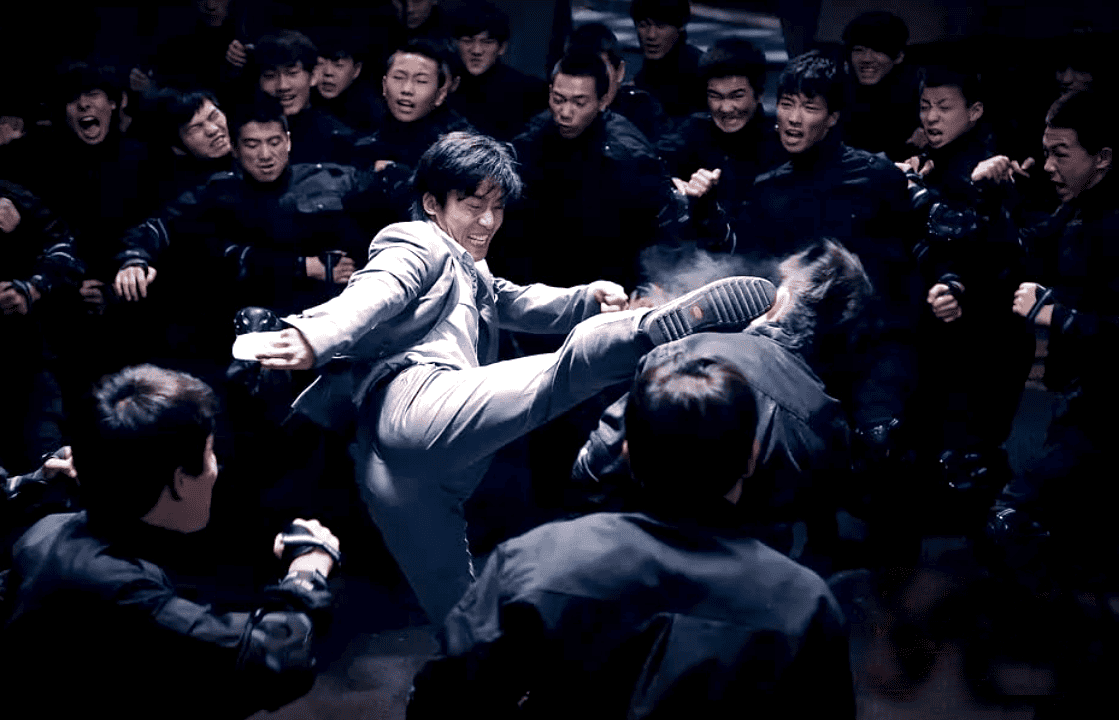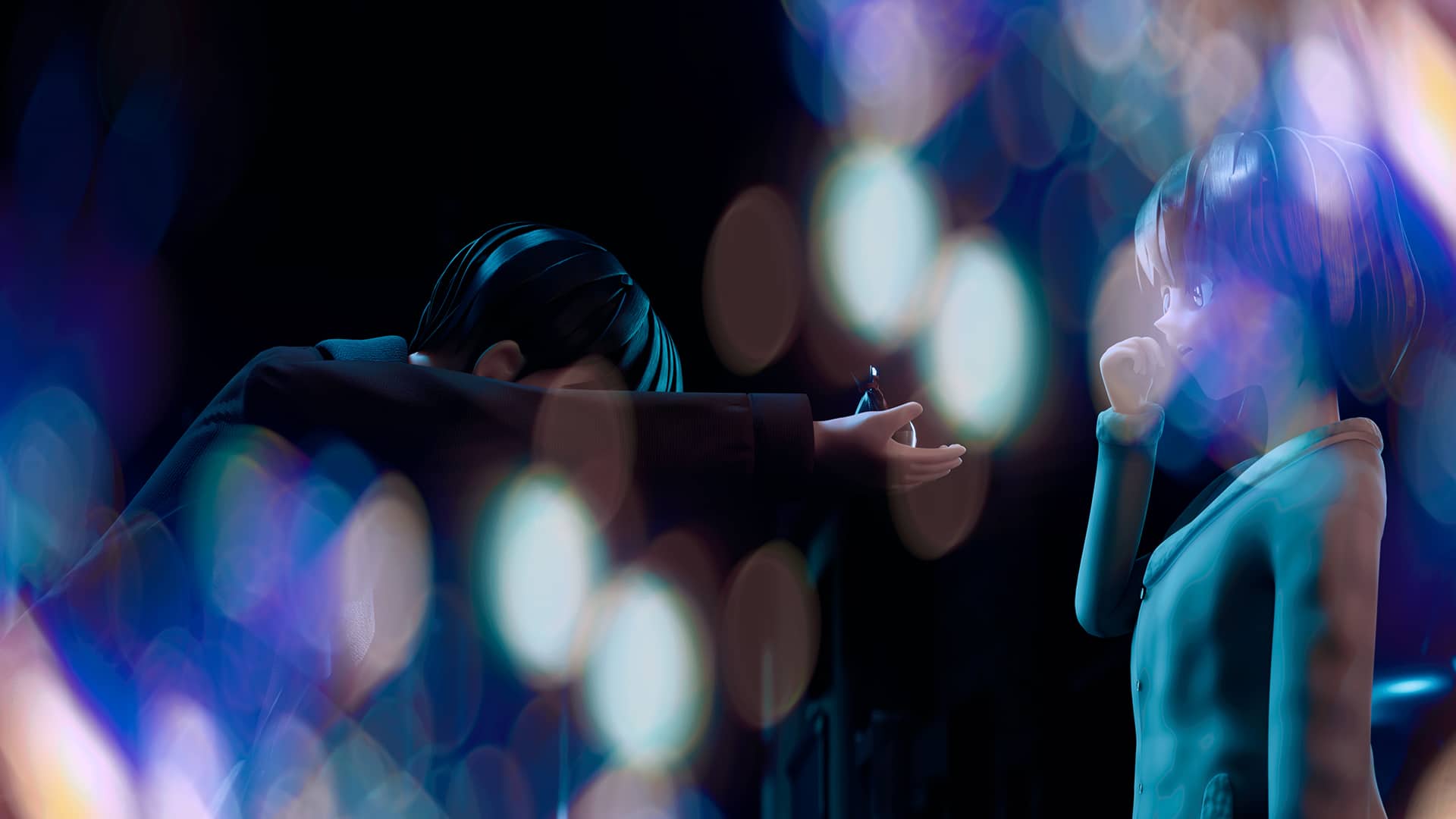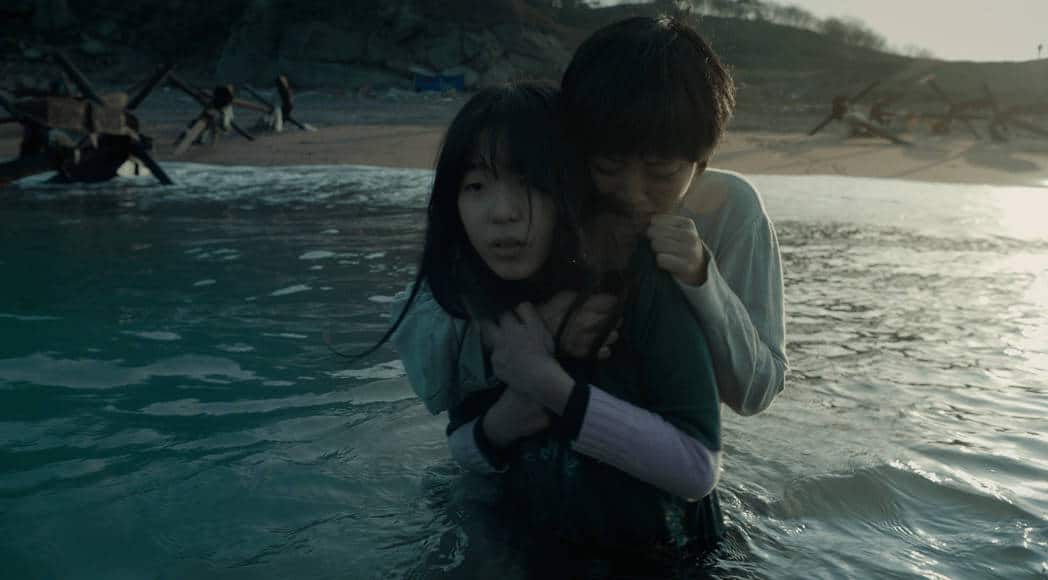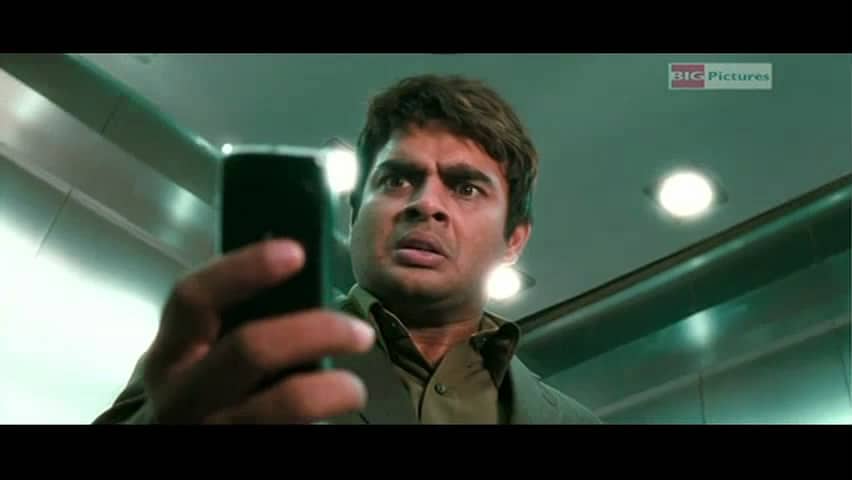Though fiction, Park Jung-bum's directorial debut “The Journals of Musan” is based on the story of a North Korean defector friend of the director. Lauded by many defectors for its true to life depiction of their lives in South Korea, the movie has won numerous awards around the world.
“The Journals of Musan” is screening at New Waves, New Shores: Busan International Film Festival

Seung-chul (Park Jung-bum) has recently defected from North Korea. Now living in the outskirts of Seoul with Kyung-chul (Jin Yong-ok), a fellow defector and remittance broker, he works numerous low-paying jobs. Shy, submissive, and very quiet, the only thing that gives him strength adjusting to the hyper-capitalist Korean society are Christian hymns, Young-sook (Kang Eun-jin), a choir member at the church he visits, whom he is in love with, and a white puppy he rescues from the streets. Chancing upon Young-sook one day, he follows her and applies for a job at the karaoke bar she's working at. However, he is soon fired from his job and has to go into hiding because of Kyung-chul.
“The Journals of Musan” is a difficult to watch film. This is for a few reasons. Firstly, the topic is very serious and exacting of the viewer. We see the main character getting constantly harassed, discriminated against, and physically abused. With no end in sight. And he just accepts it, without saying anything. This brings us to the second reason – it makes us perceive Jung-bum's hopelessness, and by extension, start feeling hopeless, too. And yet, due to the masterful acting by Park Jung-bum, we never feel like we don't care about the North Korean defector. Quite the opposite, we want to help him, but know that we can't. So, we feel frustrated, wanting to shout at him, beat everyone else, and help him feel just slightly better. And still, we know we can't do that.
And the other characters, all of them, treat him terribly. From his so-called friend and roommate, who scams people for a living and seems to get a kick off of having someone more pathetic than himself, to the lowlife thugs who attack him every time they see him putting posters on their turf. But the person we hate the most, and the one that the main character ironically loves most, is Sook-young. Selfish, petty, condescending, and shallow, she personifies everything wrong about Korean society. On top of that, she is a holier-than-thou Christian, who seems to not properly understand anything about the religion.
At the beginning, when she thinks Seung-chul is just a random South Korean, she treats him in the worst way possible. Like he is human trash, liar, and a stalker, and doesn't understand anything about Christianity simply because he is caught singing Christian hymns at the karaoke place both of them work at. At one point, she even tells him to pretend he doesn't know her in church, because she doesn't want to get connected with a lowlife like him. In a word, she doesn't really care about the wellbeing of her fellows but only of her own standing in church.
However, her attitude towards Seung-chul changes immediately when she learns that he is a North Korean refugee. She starts being nice to him, proudly introducing him to the other church members, even inviting him to sing with her at the choir. We can't but feel that this sudden change of attitude is brought by her shallow understanding of the religion and her selfish desires to be a “good person.” And yet, the defector seems to acquiesce to his destiny worse than that of a foreigner and accept her hand.
The situation is not like that with the rest of Korean society, though. As crazy and selfish Sook-young might be, at least she tries to help him. That's not the case with any other South Korean character in the movie, though. They don't want to have anything to do with him. Thorough the movie, the recent defector tries to apply to a few jobs, all of which decline to hire him based on his the ID number that identifies him as a North Korean defector. Here, we can see Park's critique of Korean society and politics as a whole. Though the country purports to accept all defectors and give them a chance for life, that is only on surface level, in front of the world. In reality, these people are heavily discriminated against and have to live subpar lives, both because of their land of origin and because of the anti-North Korean propaganda by the government. As a result, they live in a state of limbo, at the same time Koreans and not.
Difficult and at times infuriating, “The Journals of Musan” is an essential watch for everyone interested in the lives of North Korean refugees.





